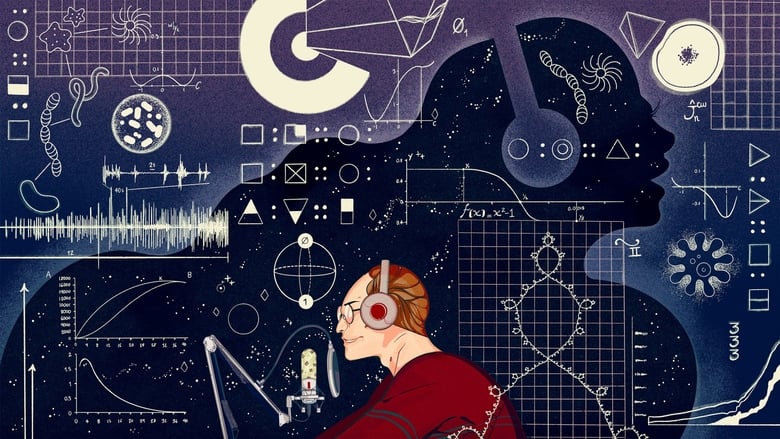
Trailer
Synopsis
Explore mind-bending developments in basic science and math research. Quanta Magazine is an award-winning, editorially independent magazine published by the Simons Foundation.
Episode 26 : What Is Emergence?
December. 20,2018
How do extraordinarily complex emergent phenomena — like ants assembling themselves into living bridges, or tiny water and air molecules forming into swirling hurricanes — spontaneously arise from systems of much simpler elements? The answer often depends on a transition in the interplay between the elements that resembles a phase change.
Episode 25 : Martin Rees on the Future of Science and Humanity
December. 05,2018
The University of Cambridge astrophysicist, Astronomer Royal and popular author discusses how our society can benefit from science while avoiding potential pitfalls.
Episode 24 : Why Different Parts of a Coffee Mug Produce Different Pitches
November. 27,2018
The Stanford mathematician Tadashi Tokieda demonstrates one of his physics “toys”: the curious higher and lower notes you hear when tapping a coffee mug with a spoon.
Episode 23 : Albert Einstein, Holograms and Quantum Gravity
November. 14,2018
In the latest campaign to reconcile Einstein’s theory of gravity with quantum mechanics, many physicists are studying how a higher dimensional space that includes gravity arises like a hologram from a lower dimensional particle theory.
Episode 22 : Valeria Pettorino on Learning About Dark Energy With the Euclid Satellite
November. 13,2018
Valeria Pettorino discusses the prospects of learning about dark energy with the Euclid satellite.
Episode 21 : Mario Jurić on How Astronomy Is Changing
October. 24,2018
Just as mathematics transformed physics from a philosophy into a science, data and computation are transforming science today, says Mario Jurić. He’s leading the push to get astronomy ready for the torrents of data that are about to flow. Mario Jurić explains how the nature of what it means to be an astronomer is changing.
Episode 20 : Renee Reijo Pera on the Importance of Timing in Embryo Development
October. 15,2018
Stem cell researcher Renee Reijo Pera of Montana State University explains how the timing of developmental events in the early embryo can subtly affect health many years later.
Episode 19 : Tomas Bohr on Performing the Double-Slit Experiment with Bouncing Droplets
October. 11,2018
Tomas Bohr explains the significance of the double-slit experiment in exposing the weirdness of the quantum world.
Episode 18 : Rosaly Lopes on Volcanoes Throughout the Solar System
August. 28,2018
Rosaly Lopes explains why it’s worth exploring the huge variety of volcanoes on other worlds.
Episode 17 : 2018 Fields Medal Coverage at Quanta Magazine
August. 06,2018
Mathematicians Caucher Birkar, Alessio Figalli, Peter Scholze and Akshay Venkatesh have been awarded the Fields Medal. Computer scientist Constantinos Daskalakis won the Nevanlinna Prize.
Episode 16 : Constantinos Daskalakis: A Poet of Computation Who Uncovers Distant Truths
August. 04,2018
Constantinos Daskalakis on why he studies the interface between theoretical computer science and human behavior.
Episode 15 : Akshay Venkatesh: A Number Theorist Who Bridges Math and Time
August. 03,2018
Akshay Venkatesh on his mathematical working style, which took him many years to discover.
Episode 14 : Caucher Birkar: An Innovator Who Brings Order to an Infinitude of Equations
August. 02,2018
Birkar discusses the need for originality in mathematics and in life.
Episode 13 : Alessio Figalli: A Traveler Who Finds Stability in the Natural World
August. 01,2018
The mathematician Alessio Figalli is rarely in one place for very long. But his work has established the stability of everything from crystals to weather fronts by using concepts derived from Napoleonic fortifications.
Episode 12 : Cohl Furey on the Octonions and Particle Physics
July. 21,2018
Cohl Furey explains what octonions are and what they might have to do with particle physics.
Episode 11 : Jessica Whited on Limb Regeneration and the Axolotl Genome
July. 02,2018
Jessica Whited is a biologist who studies limb regeneration at Harvard Medical School and Brigham and Women’s Hospital. Here, she explains how genomic information for the salamander called an axolotl will help us understand the potential for regrowing limbs in humans and other animals.
Episode 10 : Carina Curto on How Physicists Can Think About Neuroscience
June. 19,2018
Carina Curto, a mathematician at Pennsylvania State University, explains how her background in theoretical physics helps her tackle daunting problems in theoretical neuroscience.
Episode 9 : Lisa Manning on the Dynamics of Glasses and Embryos
June. 11,2018
Lisa Manning, a physicist at Syracuse University, describes how the physics of glassy materials helps to explain how some organs assume their correct shape during embryonic development.
Episode 8 : Michela Massimi: Defending the Philosophy of Science
May. 24,2018
Michela Massimi argues that the philosophy of science doesn’t have to be useful to scientists for it to be useful to humanity.
Episode 7 : Donald Richards: A Revealer of Secrets in the Data of Life and the Universe
April. 11,2018
Donald Richards discusses the statistical rule-of-thumb he wishes everyone knew.
Episode 6 : Günter Ziegler Seeks God’s Perfect Math Proofs
March. 19,2018
Günter Ziegler describes one of the most famous and beautiful proofs in "Proofs From THE BOOK," a book he co-authored with Martin Aigner.
Episode 5 : Barbara Engelhardt on How to Improve Statistical Analyses of Genomes
February. 27,2018
Barbara Engelhardt, a computer scientist at Princeton University, explains why traditional machine-learning techniques have often fallen short for genomic analysis, and how researchers are overcoming that challenge.
Episode 4 : Daniel Goldman and His Smart Robots
February. 14,2018
Goldman explains how “smarticles” work together to demonstrate collective behavior.
Episode 3 : Erich Jarvis on Theories About the Origin of Vocal Learning
January. 30,2018
Neuroscientist Erich Jarvis discusses how the brain circuitry for vocal learning in songbirds and humans evolved from systems for controlling body movements and why so few species have this ability.
Episode 2 : Ed Boyden on the Promise of Expansion Microscopy
January. 18,2018
Ed Boyden of MIT’s Media Lab, the inventor of expansion microscopy, explains how the technique could illuminate deep mysteries about how the brain works and improve cancer diagnosis, among many other advances.
Episode 1 : Richard Schwartz: In Praise of Simple Problems
January. 09,2018
Mathematician Richard Schwartz talks about why he's attracted to the hidden depths of simple problems.
Seasons
Similar titles
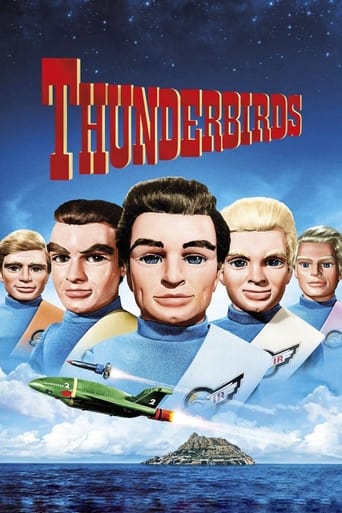
Prime Video
Thunderbirds
Thunderbirds is a 1960s British science-fiction television series which was produced using a mixed method of marionette puppetry and scale-model special effects termed "Supermarionation". The series is set in the 21st century and follows the exploits of International Rescue, a secret organization formed to save people in mortal danger with the help of technologically advanced land, sea, air and space vehicles and equipment, launched from a hidden base on Tracy Island in the South Pacific Ocean.
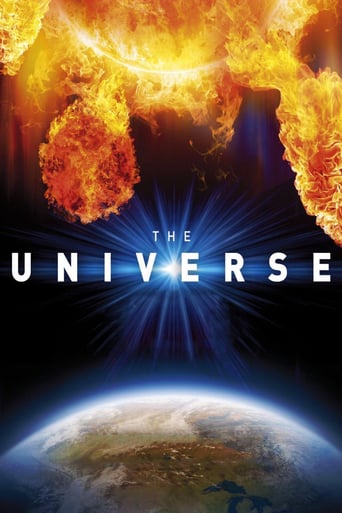
Prime Video
The Universe
From the planets to the stars and out to the edge of the unknown, history and science collide in a wondrous yet deadly adventure through space and time.
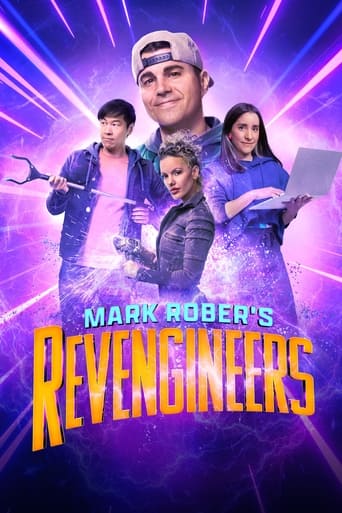
Max
Mark Rober's Revengineers
Mark Rober, former NASA engineer and current Apple engineer, created a viral glitter prank to serve justice to doorstep delivery thieves. Now you can join him and his team to take down the morally impaired. He'll build a trap, set the bait and wait.
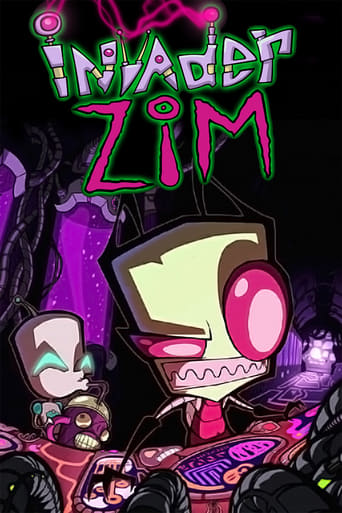
Prime Video
Invader ZIM
Invader Zim is an American animated television series created by Jhonen Vasquez. The show premiered on Nickelodeon on March 30, 2001. The series involves an extraterrestrial named Zim who originates from a planet called Irk, and his ongoing mission to conquer and destroy Earth. His various attempts to subjugate and destroy the human race are invariably undermined by some combination of his own ineptitude, his malfunctioning robot servant GIR, and a young paranormal investigator named Dib, one of the very few people attentive enough to be aware of Zim's identity.
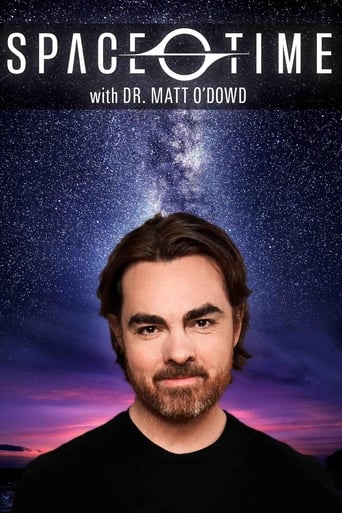
PBS Space Time
Space Time explores the outer reaches of space, the craziness of astrophysics, the possibilities of sci-fi, and anything else you can think of beyond Planet Earth with our astrophysicist host: Matthew O’Dowd.

Netflix
The Future Of
With the help of industry experts, this innovative docuseries examines new and emerging technological trends to imagine revolutionary possibilities.

HULU
Critter Fixers: Country Vets
100 miles south of Atlanta, Dr. Hodges and Dr. Ferguson are two longtime friends who own and operate Critter Fixer Veterinary Hospital. Together with their loving staff, Drs. Hodges and Ferguson treat and care for over 20,000 patients. Between emergency visits to the office, and farm calls throughout rural Georgia - the Critter Fixers are constantly bombarded with unique cases you only see in the country.
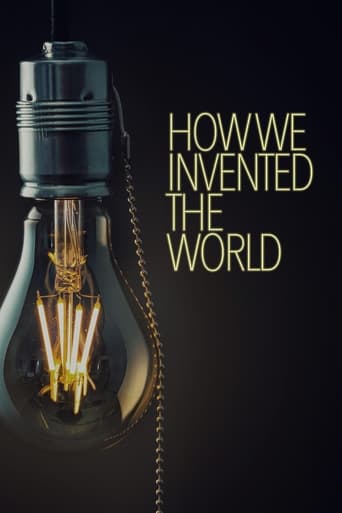
How We Invented The World
How We Invented the World is the ultimate action-packed, hi-energy, landmark series that examines the four inventions that define the modern world - mobiles, cars, planes and skyscrapers -celebrating the people and connections that made them possible. Each playing a crucial role in where we are now in the 21st Century - able to travel the globe, to talk to one another at any time at the push of a button, to live in huge cities, to commute, to capture the world we live in, making the fantasies we create come to life. This four part series lifts the lid on how these iconic inventions came to be. Showcasing the people who have shaped our lives in ways that they could have never imagined or anticipated, this series reveals stories of human ingenuity, extraordinary connections, unprecedented experimentation and jaw dropping accidents that created the world as we know it.

The Bell System Science
The Bell System Science Series consists of nine television specials made for the AT&T Corporation that were originally broadcast in color between 1956 and 1964. Marcel LaFollette has described them as "specials that combined clever story lines, sophisticated animation, veteran character actors, films of natural phenomena, interviews with scientists, and precise explanation of scientific and technical concepts — all in the pursuit of better public understanding of science.
Top Streaming TV Show
#1

Grey's Anatomy
March. 27,2005
7.6
#2

A Teacher
November. 10,2020
6.9
#3

The Mandalorian
November. 12,2019
8.6
#4

Station 19
March. 22,2018
7
#5

Game of Thrones
April. 17,2011
9.2
#6

The Undoing
October. 25,2020
7.4
#7

Supernatural
September. 13,2005
8.4
#8

The Last Dance
April. 19,2020
9.1
#9

Euphoria
June. 16,2019
8.3
#10

Fear the Walking Dead
August. 23,2015
6.8

